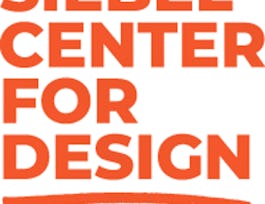This course is for anyone who wants to make a difference. Whether you are already familiar with the field of social innovation or social entrepreneurship, working for an organization that wants to increase its social impact, or just starting out, this course will take you on a journey of exploring the complex problems that surround us and how to start thinking about solutions.


Becoming a changemaker: Introduction to Social Innovation
Taught in English
Some content may not be translated
113,411 already enrolled
(1,533 reviews)
What you'll learn
How to develop the concepts, mindset, skills, and relationships needed to start becoming a changemaker.
How to form your own approach to social innovation and identify resources to begin acting as a social innovator.
Skills you'll gain
Details to know

Add to your LinkedIn profile
6 quizzes
See how employees at top companies are mastering in-demand skills


Earn a career certificate
Add this credential to your LinkedIn profile, resume, or CV
Share it on social media and in your performance review

There are 6 modules in this course
Welcome to Becoming a changemaker! This week, we distinguish between simple, complicated and complex problems. Social innovation takes place in complex systems and complex systems have complex or “wicked” problems, like the kinds of problems the world is trying to tackle right now such as climate change, HIV Aids and other pandemics, poverty and inequality. A complex system has many variables or elements such as different sorts of people, material and rules and those elements of the system are interacting with each other so much that the complexity increases exponentially. So the work of complexity is about bringing yourself into the system, engaging with it, living with it and innovating in yourself as you innovate in that system that you’re working in. You can’t look at the whole system but you can look at more than one piece of it. The more you start to bring in different parts of the systems, you can then start to connect those in ways that they weren’t connected before.
What's included
10 videos5 readings1 quiz1 peer review2 discussion prompts
One of the hallmarks of very innovative organizations and people is that they see resources where other people don’t, and they can bring those resources to bear to create new innovative solutions. There’s transformative power in shifting from looking at needs, gaps, and what’s wrong, to appreciating strengths, resources and what’s right. Through developing a strength-based mindset and an appreciative approach you can discover hidden or underused resources. These resources might be people, kinds of knowledge and expertise, time, and physical spaces. As soon as you start seeing resources all around you, not only can you move forward but you become energised and hopeful, and creative things start to happen. You’ll find that you might be a lot richer than you think in terms of what you have to start building your own social innovation with.
What's included
6 videos2 readings1 quiz1 peer review1 discussion prompt
By nature the world of social innovation is made of crossing boundaries, bringing together different actors, resources, spaces, but it can be overwhelming. Part of our challenge on the journey to becoming changemakers is to learn how to become comfortable with discomfort and how in the social innovation space where you take yourself into spaces and you surround yourself with people that you normally do not engage with. Understanding how we define differences using cultural, sociological, psychological and spiritual lenses and what the nature of the differences is helps to develop tools for getting out of your comfort zone. It takes a little bit of courage because it makes you uncomfortable, but that’s how you build the competencies, the personal resilience to engage with difference when we do go and drive for innovations or we look to make differences in communities that are unlike us or operate in a different way.
What's included
7 videos2 readings1 quiz1 peer review2 discussion prompts
A number of methodologies and processes can help generate ideas and creative opportunities, and some of these have been used in business to generate new products and services, and are starting to be applied in social innovation. Human-centred design is incredibly important, and the Design Thinking process allows you to start early and wherever you are with whatever you’ve got. Design Thinking has evolved as a way to respond to deeper user insights, to connect more with people and with communities so that we can actually design solutions that are human-centred. Design Thinking is not just about products, but also helps create new processes, new systems, new services, and importantly even user experiences. Following a Design Thinking process will help you iterate and test your solution with end users, with an emphasis on failing early and often through trying things out and prototyping. Powerful Design Thinking methodology can help you to come up with human-centred design solutions that manifest economic viability, technical feasibility and social desirability in your social innovation.
What's included
9 videos2 readings1 quiz1 peer review2 discussion prompts
Understanding that social innovation is system innovation can help us appreciate why social innovation is so difficult to do. Social innovations can start to challenge and change the underlying system conditions that caused the social or environmental problem in the first place. We are asked to innovate around belief systems, or around authority, power, and resource flows. So, a social innovation challenges the rules of the game. Asking what’s innovative about the work means asking questions around the experiences of where an innovation might be changing the rules of the games and allows us to go deeper into the kinds of impacts that might be possible, and discover hidden impacts. When any kind of social innovation starts to get at the systemic roots, we’re going to be provoking anxiety. So it’s quite helpful to map out the social system and the rules that govern it and then to consider how you are challenging these rules through the innovation.
What's included
6 videos2 readings1 quiz1 peer review1 discussion prompt
In the end social innovation is about impact. We’re all trying to have a meaningful, positive effect on the world, whatever that might mean to us. If we do this and we’re actually successful, this is going to take us sooner or later to the question of scale. How do we grow that innovation? As social innovations mature, the forms they could take and the multiple ways in which you could organise around achieving impact increase. It used to be easy to label organisations according to non-profit and for profit, and government institutions based on their purpose, its organisational structure and the way it measured what it achieved. That’s all changing. There are different ways to diffuse and scale the work that we’re doing to achieve impact.
What's included
7 videos3 readings1 quiz1 peer review1 discussion prompt
Instructors



Offered by
Recommended if you're interested in Entrepreneurship

Yale University

University of Cape Town

University of Pennsylvania

University of Illinois at Urbana-Champaign
Why people choose Coursera for their career




Learner reviews
Showing 3 of 1533
1,533 reviews
- 5 stars
85.34%
- 4 stars
11.07%
- 3 stars
2.28%
- 2 stars
0.32%
- 1 star
0.97%
New to Entrepreneurship? Start here.

Open new doors with Coursera Plus
Unlimited access to 7,000+ world-class courses, hands-on projects, and job-ready certificate programs - all included in your subscription
Advance your career with an online degree
Earn a degree from world-class universities - 100% online
Join over 3,400 global companies that choose Coursera for Business
Upskill your employees to excel in the digital economy
Frequently asked questions
Access to lectures and assignments depends on your type of enrollment. If you take a course in audit mode, you will be able to see most course materials for free. To access graded assignments and to earn a Certificate, you will need to purchase the Certificate experience, during or after your audit. If you don't see the audit option:
The course may not offer an audit option. You can try a Free Trial instead, or apply for Financial Aid.
The course may offer 'Full Course, No Certificate' instead. This option lets you see all course materials, submit required assessments, and get a final grade. This also means that you will not be able to purchase a Certificate experience.
When you purchase a Certificate you get access to all course materials, including graded assignments. Upon completing the course, your electronic Certificate will be added to your Accomplishments page - from there, you can print your Certificate or add it to your LinkedIn profile. If you only want to read and view the course content, you can audit the course for free.
You will be eligible for a full refund until two weeks after your payment date, or (for courses that have just launched) until two weeks after the first session of the course begins, whichever is later. You cannot receive a refund once you’ve earned a Course Certificate, even if you complete the course within the two-week refund period. See our full refund policy.


